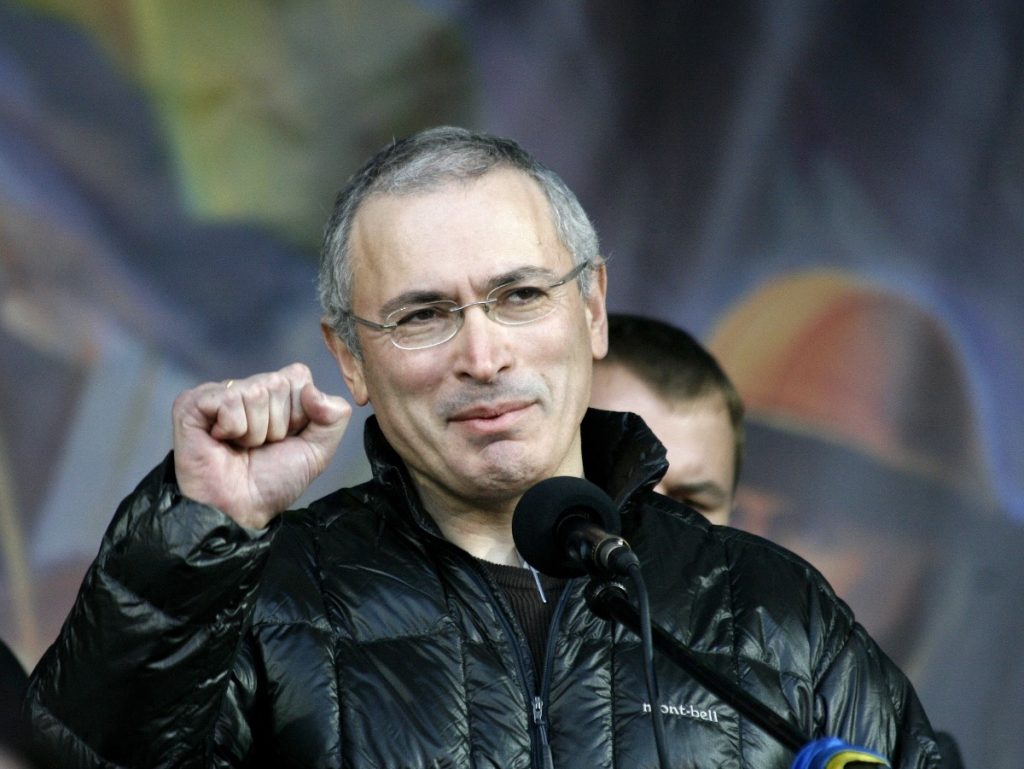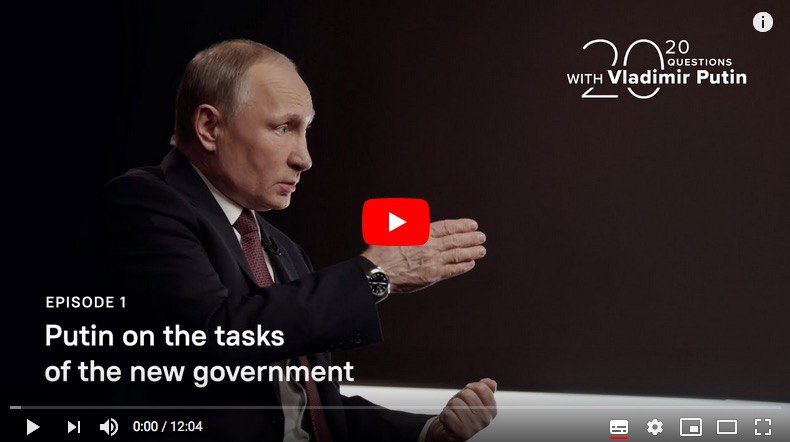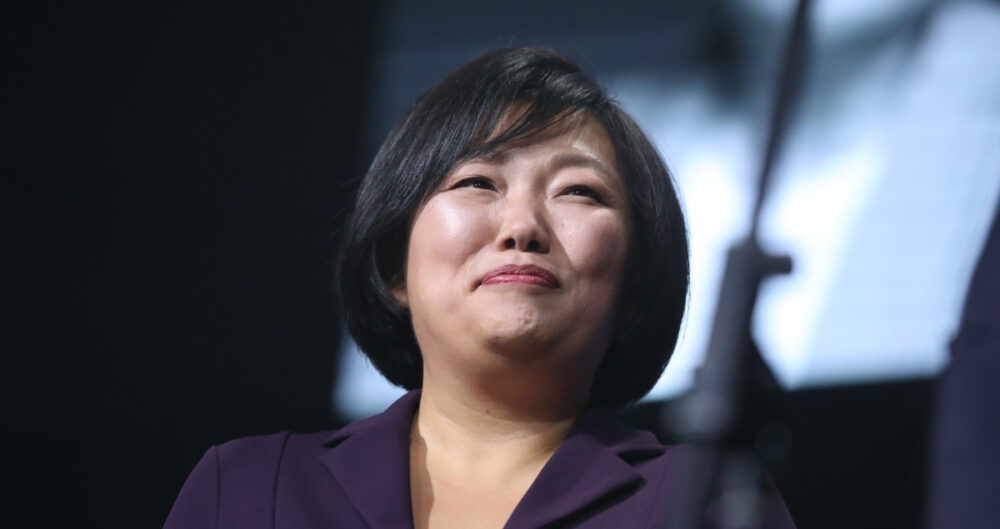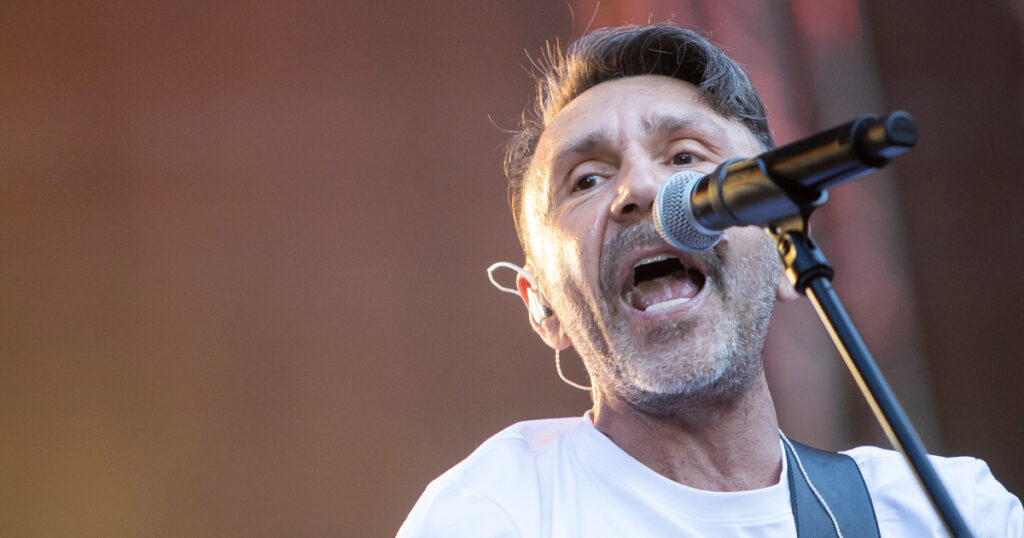
Liable for $50 billion?
Hello! This week our top story is the fallout from the latest ruling by a Dutch court in a $50 billion case brought against the Russian state by ex-Yukos shareholders. We also look at a new video interview with Putin that mimics a YouTube blog, how a Soviet-developed drug that China could use to treat coronavirus caused a social media furore, Russia’s first new richest woman since 2004, and the rockstar who wants to run for parliament.

Mikhail Khodorkovsky is to blame for the journalists’ death in Africa, says propaganda
Yukos wins $50bln lawsuit against Russia. But will Russia pay?
A Dutch appeals court handed former shareholders in defunct Russian oil company Yukos a legal victory Tuesday in a $50 billion court case against the Russian state. If it happens, this would be the largest ever payout in arbitration history, equivalent to 3 percent of Russian GDP. It’s almost certain Russia will refuse to pay voluntarily, but the court does have ways of forcing Moscow to hand assets to the winning party. This is how it will work.
What happened? Yukos won the case in an appeals court in The Hague in September, but the decision was only made public this week: the court ruled that Russia owes the ex-shareholders $50 billion. In 2014, The Hague-based Permanent Court of Arbitration came to the same conclusion, but Russia successfully appealed the decision in the District Court of the Hague two years later.
What’s the case about? The head of oil company Yukos, Mikhail Khodorkovsky, was arrested in 2003 on charges widely considered to be politically motivated — he was only released ten years later. Yukos went bankrupt in 2006 after the Russian government demanded billions of dollars in back taxes.
How did Russia defend itself? Russia’s arguments were procedural. It said it never ratified the Energy Charter Treaty (which regulates the energy industry) meaning the case should have been heard by a Russian court. But the Dutch court disagreed: it said that, since Russia signed the treaty, it must adhere to it in all ways that do not violate Russian law.
What next? Russia plans to contest the decision in the Dutch Supreme Court. But its chances of winning are likely to be slim.
Will Russia pay? Lawyers told (Rus) The Bell that there was little chance of Russia voluntarily coughing up the cash. But the ruling could be enforced if judges in dozens of different countries issue orders to freeze Russian assets abroad (excluding assets protected by sovereignty – for example, military ships). This is not an unrealistic prospect. After a similar court victory for ex-Yukos shareholders in 2014, Russian property was seized in Belgium and France. This included the bank accounts of state-owned TV network Russia Today, and a plot of land near the Eiffel Tower with a $98 million Orthodox Christian centre.
Why the world should care
Russia has been trying hard to prove its laws should take precedence over international law, and there are even plans to insert words to this effect into the new constitution. But the victory of the former Yukos shareholders shows Russia is much more dependent on the international legal system than it would like to admit.
Putin goes YouTube-style in new interview
Russian President Vladimir Putin said little that was newsworthy in a video interview released Thursday by state-owned news agency TASS. Instead, discussion focused on the format of the interview, which was an obvious copy of popular YouTube vloggers — an apparent attempt to help the Russian leader reach out to new audiences.
- Trailed as Putin’s first ever internet video interview, the first part — a 12-minute segment about Russia’s new government — was released Thursday, with a second segment following Friday. The other 18 parts (a total of 3.5 hours) will be released over the next 5 weeks. The style of filming and the approach of interviewer Andrei Vandenko was a clear attempt to mimic YouTube shows: the camera moved restlessly between different angles, explainers popped up on the screen as Putin spoke, and within 90 seconds Vandenko had whipped out his iPad to show Putin a meme. The interview was produced by a company called Zamaleev Production, which is better known for its work on TV reality shows.
- Opinion was divided on the success of the interview, with some viewers complaining that the musical interludes and the camerawork made it exhausting to watch. Nor did it do particularly well on YouTube — within a day, the first video segment had only been watched 40,000 times. In comparison, Russia’s most successful YouTubers gather millions of views within hours of uploading content.

- YouTube in Russia has become an increasingly important platform for social and political debate in recent years. At the same time, Russia’s television networks, which are tightly controlled by the Kremlin, have seen their viewing figures and advertising revenues fall. Research (Rus) last year by independent pollster Levada Center showed that the number of Russians who get most of their information from television fell from 94 percent to 72 percent over the last decade, while trust in television dropped from almost 80 percent to 55 percent. Regular television shows with Putin, like his annual call-in, have seen a steady decline in viewing figures.
- When drawing comparisons with TASS’ format, many have in mind YouTube star Yuri Dud, whose interviews and films are watched by millions. Dud’s recent film about HIV was seen (Rus) over 14 million times in a week, and led to a spike in requests for HIV tests. The film also revealed how officials are taking an interest in Dud’s influence over his young audience: deputies in the Russian parliament invited Dud to speak, and the film was even praised by Putin’s spokesman, Dmitry Peskov.
Why the world should care
Kremlin officials are acutely aware that declining TV audiences, particularly among young people, pose a threat to their ability to control information flows. While censorship and repression are one way to counter this, so is experimenting with new formats.
Can a Soviet-developed medicine treat coronavirus?
This week, China included a drug invented in the Soviet Union, Arbidol, in a draft plan (Chi) for treating coronavirus. The Bell’s article on this caused a social media storm, so we decided to explain why Russians are so concerned with Arbidol, and how it links to Putin.
- Arbidol is an antiviral medication developed in the 1970s. Arbidol is its Russian brand name — the drug is called umifenovir. Since the patent expired, the medicine has been produced in other countries, including in China.
- Experts from China’s ministry of health said (Chi) earlier this month that Arbidol might be useful in treating coronavirus. This was immediately reported, in both English language publications such as The New York Times, and in Russian, including by The Bell. However, other media outlets claimed the medication in question was a different one with a slightly different name – Abidol. Despite the confusion, the news was welcomed by the market as a breakthrough, and became one of the drivers behind a 4 percent jump in the price of crude oil.
- The Bell double-checked that the drug in question was indeed Arbidol. Reports to the contrary are bizarre: Abidol is an analogue of Tramadol, an opioid painkiller.
- The news that China had included Arbidol in its plan for treating coronavirus patients led to a social media storm, and The Bell received dozens of emails about the issue. Why are Russians so bothered?
- The simple answer is that there are plenty of doctors in Russia who do not adhere too closely to the principles of evidence-based medicine. In state-run clinics, it’s common to be prescribed dietary supplements, and dubious medicines (like Arbidol). The effectiveness of Arbidol has never been proven by research conducted to international standards. And the whole picture is made more complex by the fact that Arbidol seems to have high-level backers in Russia: it is produced by a friend of Deputy Prime Minister Tatiana Golikova, who oversees healthcare, and in 2010, it was personally recommended (Rus) by Putin. Unsurprisingly, Arbidol has been the most popular (Rus) over-the-counter drug in Russia for several years in a row.
- The combination of the medication’s disputed effectiveness and its incredible popularity leads to big arguments between skeptics and believers.
Why the world should care
The story of Arbidol is not really about coronavirus, but rather a glimpse into the Russian mentality. If China can trial the effectiveness of Arbidol on thousands of patients in challenging conditions it might provide an answer to a question that gets a lot of people very exercised: is Arbidol real medicine or simply a glorified sugar pill?
IN BRIEF
Russia gets a new richest woman for the first time in 16 years
Tatiana Bakalchuk became Russia’s richest woman Thursday as Forbes magazine announced (Rus) her fortune had jumped to $1.4 billion. The former English teacher and mother of four is the sole owner of fast-growing internet shopping platform Wildberries, which sells goods including clothes, electronics, cosmetics, books, and food. Last year, Wildberries’ turnover increased 88 percent. Bakalchuk replaced real estate tycoon Yelena Baturina as Russia’s richest woman, a position Baturina had held since 2004.
Baturina’s fortune is currently estimated at $1.2 billion, down from as much as $4.2 billion in 2010. In contrast to Baturina, who owed much of her wealth to her late husband, former Moscow Mayor Yuri Luzhkov, Bakalchuk is a self-made woman. She set up Wildberries with her husband while on maternity leave in 2004.

Rockstar announces start to political career
The frontman of iconic rock group Leningrad, Sergei Shnurov, revealed Thursday he was embarking on a political career when he joined the little-known Party of Growth. Shnurov, 46, will also run for a parliamentary seat in elections next year at the request of the presidential administration, according to a report by Open Media (Rus). There has been much speculation in recent months that the Kremlin wants to attract ‘colorful’ figures to run for parliament on the ticket of a minor political party, a tactic designed to ensure most parties fail to exceed the 5 percent threshold needed to enter the lower chamber (thus bolstering the ruling party, United Russia).
Even if he is serious, Shnurov’s chances of electoral success are slim: Party of Growth leader Boris Titov got a mere 0.76 percent of the vote in 2018 presidential elections. Known for his expletive-filled songs, Shnurov may be a popular musician, but it seems unlikely that he will be in politics for long. Much more likely is that he will reprise the role played by celebrity TV presenter Ksenia Sobchak, who got a new show on state-owned TV this year after agreeing to stage a presidential bid.





